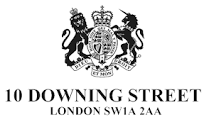PRESS RELEASE : National curriculum review launched [January 2011]
The press release issued by the Department for Education on 20 January 2011.
The Secretary of State for Education today announced a major review of the national curriculum in England.
The review will be led by the Department for Education, supported by an advisory committee and expert panel made up of top teachers, academics and business representatives.
The review will:
- replace the current substandard curriculum with one based on the best school systems in the world, providing a world-class resource for teachers and children
- consider what subjects should be compulsory at what age
- consider what children should be taught in the main subjects at what age
Education Secretary Michael Gove said:
We have sunk in international league tables and the national curriculum is substandard. Meanwhile the pace of economic and technological change is accelerating and our children are being left behind. The previous curriculum failed to prepare us for the future. We must change course. Our review will examine the best school systems in the world and give us a world-class curriculum that will help teachers, parents and children know what children should learn at what age.
Chair of the expert panel, Tim Oates, said:
The national curriculum that we have at the moment has led teachers to move with undue pace through material and encouraged a ‘tick list’ approach to teaching. We will work with the advisory committee, as well as appraising carefully both international and national research, as part of this review. We will make changes only where justified, in order to avoid unnecessary disruption to the education system.
Members of the advisory committee and expert group welcomed today’s review.
Shahed Ahmed, Head of Elmhurst Primary School, Forest Gate, and advisory committee member, said:
I believe this review will be very helpful to re-establish that the best way to teach the primary national curriculum is through a rigorous subject-based approach. It would also be very helpful if the national curriculum is slimmed down so that schools have more time and flexibility to fit in what else they think it important to have in their own school curriculum. I also think it important to emphasise that a good grounding in the basics is the foundation to being creative.
Dame Yasmin Bevan, Executive Principal and Head of Denbigh High School and Challney High School for Boys, and advisory committee member, said:
We need a national curriculum review to establish clarity about what teachers must teach, what children must learn and what parents can expect of their children’s learning. We want to avoid overload, allowing time to ensure concepts, knowledge skills and understanding are fully developed. We also want to establish clarity about the standards we expect our young people to achieve so that they can compete confidently with the best of their peers globally.
Mike Harris, education skills lead at the Institute of Directors, and advisory committee member, said:
Education is on the frontline of the battle for the UK’s future competitiveness. We need to be confident that what we teach, the way in which we teach it, and how we assess and examine the knowledge we impart, matches the best in the world. The national curriculum review will play an important part in that effort.
Professor Nigel Thrift, Vice Chancellor, Warwick University, and advisory committee member, said:
The national curriculum review is important for universities. We need a national curriculum that delivers the knowledge children need to attend university and we need it now. Too often we find that, despite teachers’ hard work and dedication, children do not have what we would consider as the basics in the disciplines that they wish to study at university, and the hope is that – in conjunction with other changes in the educational landscape – this state of affairs can be changed for the better.
Professor Dylan Wiliam, former Deputy Director at the Institute of Education, Professor of Educational Assessment, and expert panel member, said:
There is growing acceptance all over the world that the quality of the teacher is the most important determinant of how much students learn. In this context, it makes sense to check that the national curriculum provides the right balance between providing a firm structure for shared national expectations for what students should learn and allowing enough scope for teachers to have the freedom to use their creativity to maximise student learning.


